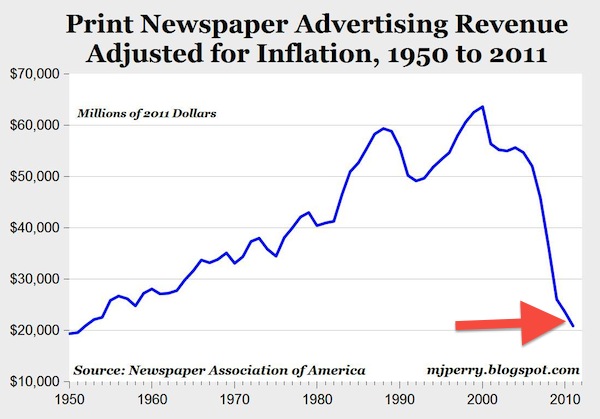Steve Myers flags this Richmond BizSense piece by Michael Schwartz, which seems to show a remarkably slow uptake on the part of Media General execs. Here’s CEO Marshall Morton:
“Over the past five years, our first thought was that this was heavily due to the recession and, like many other recessions in the past, that this was a cycle. You tighten your belt, freeze hiring and even drop the number of people.
“So we went through a couple years thinking that was the way to handle it. But it kept going.”
It wasn’t until the second quarter of 2011, Morton says, “that we realized the world had changed.”
Steve’s too nice to put too fine a point on it, but that is, frankly, a little astonishing. Below is a chart using NAA data (courtesy Mark Perry) showing print newspaper ad revenue since 1950, adjusted for inflation. The red arrow marks the point Media General’s CEO “realized the world had changed.”

Leave a comment
You must be logged in to post a comment.